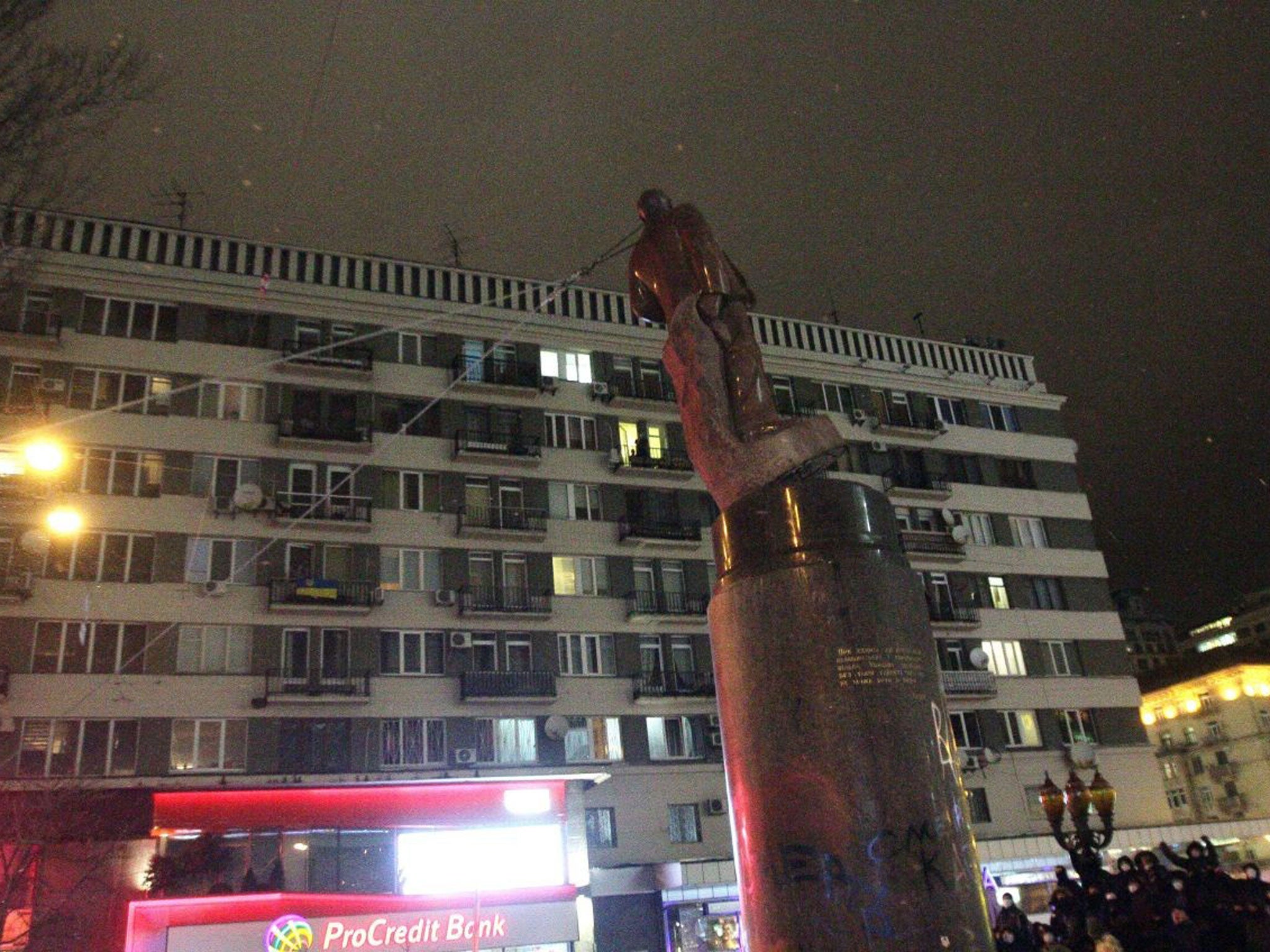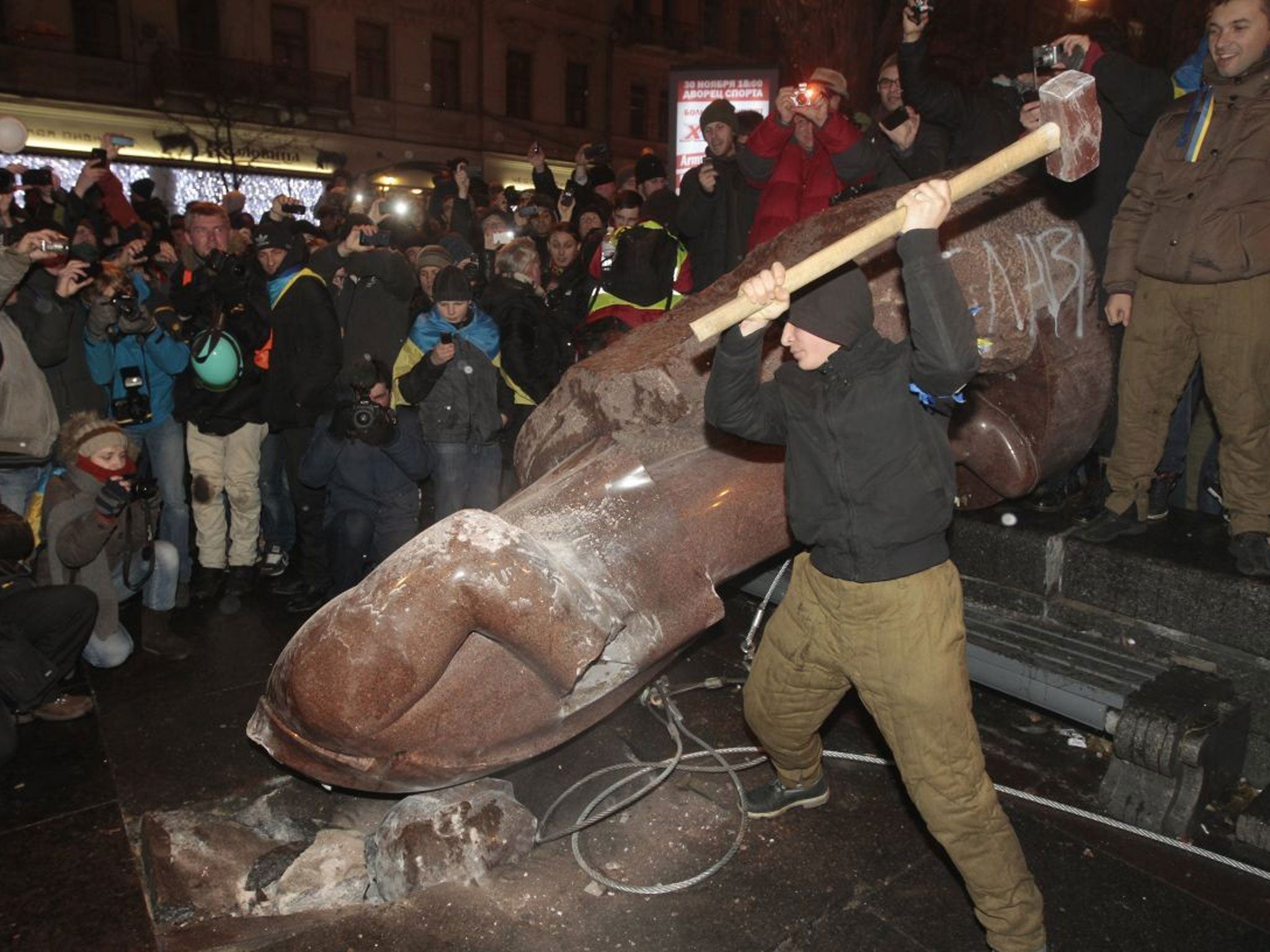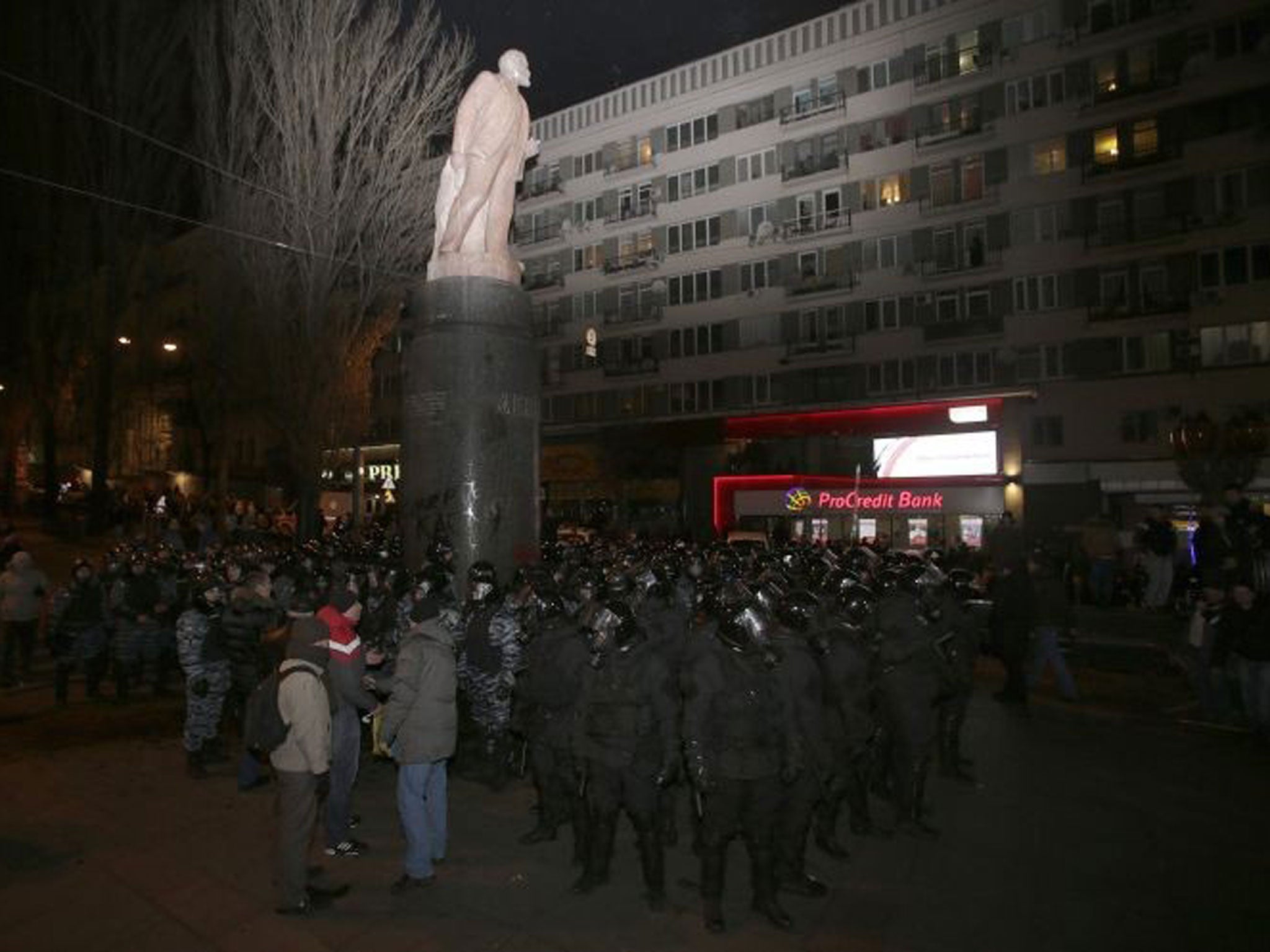Goodbye, Lenin: Protesters raise the stakes at Kiev rally as they topple statue of former Communist leader
As hundreds of thousands of Ukrainians demonstrate against plans for closer ties with Moscow, a hated symbol of Soviet rule is removed

Protesters calling for an end to the Ukrainian government’s pro-Russian stance decapitated and toppled a statue of Vladimir Lenin in Kiev on Sunday night as hundreds of thousands denounced the administration’s move away from Europe toward Moscow.
Activists took turns beating on the torso of the fallen statue of the Communist icon, while others chanted “Glory to Ukraine!”
The chaotic demonstration further raised tensions in the capital. The attack on the statue came amid huge rallies in central Kiev on Sunday in the biggest protest since 2004’s pro-democracy Orange Revolution. The vast crowds who gathered in sub-zero temperatures in Independence Square denounced President Viktor Yanukovych’s decision to turn away from Europe, raising the stakes in the tense political standoff gripping the former Soviet republic.
One opposition leader, Oleksandr Turchynov, said the protest had matched its billing as “the March of a Million”. Video footage filmed from high above the square showed streets jammed with people far into the distance. Mr Turchynov’s claim could not immediately be verified but reports on the ground suggested that more than 500,000 demonstrators had crammed into and around the square, waving European Union flags and singing the national anthem. As the government played hardball, threatening harsh measures against the demonstrators and arresting opposition activists, the unrest only gathered steam.

“Yanukovych has lost legitimacy as President ... He is no longer the President of our state. He is a tyrant,” the jailed former Prime Minister, Yulia Tymoshenko, said in a letter which was read to the crowd by her daughter. “Don’t give in, not a step back, don’t give up, the future of Ukraine is in your hands.”
The demonstrations erupted last month after Mr Yanukovych shelved a long-planned treaty with the European Union to focus on ties with Russia. They were also galvanised by police violence and fears that Mr Yanukovych was on the verge of bringing his country into a Russian-led economic alliance, which critics say could end Ukraine’s sovereignty.
“It’s not just a simple revolution,” Oleh Tyahnybok, an opposition leader with the national Svoboda party, told the crowd in a fiery speech from a giant stage. “It’s a revolution of dignity.”
A solution to the crisis appears elusive, with the government pretending not to notice the protests, and the opposition issuing contradictory statements on how to proceed next. In her letter, Ms Tymoshenko spoke against holding any talks with the government unless they entailed early elections, even though her top ally, Arseniy Yatsenyuk, signalled the day before that talks were possible if Mr Yanukovych fired his Prime Minister, Mykola Azarov. Western diplomats have also been urging dialogue.
The world heavyweight boxing champion Vitali Klitschko, another leading opposition figure, sided with Ms Tymoshenko in calling for the departure of Mr Yanukovych and early presidential elections, even though there is no legal possibility to impeach the President and virtually no chance that he would resign on his own. “We will fight and we are confident that we will win,” Mr Klitschko said.
Ms Tymoshenko’s top ally, Arseniy Yatsenyuk, focused more on dismissing Mr Azarov, punishing the police who used force against demonstrators and freeing about a dozen opposition activists arrested since last Sunday’s rally. He urged demonstrators to blockade the entire government district in Kiev, which houses the cabinet, the presidential offices and parliament.
“We are extending our demonstration. We are going to fight until victory. We will fight for what we believe in,” he told the crowd, which was drowning in a sea of flags.

A much smaller pro-government rally was held dangerously close to the opposition march. The two crowds were separated by police, but demonstrators then mingled openly in a nearby park and there were fears of clashes.
“Ukraine is tired of Yanukovych, we need new rules, we need to completely change those in power,” said protester Kostyantyn Meselyuk. “Europe can help us.”
The demonstrations began last month after Mr Yanukovych shelved the signing of an agreement to deepen ties with the 28-nation European Union.
During a protest a week ago, several hundred protesters hurled stones and attacked police as they tried to storm the presidential office, prompting a violent breakup in which dozens were injured.
AP
Join our commenting forum
Join thought-provoking conversations, follow other Independent readers and see their replies
Comments
Bookmark popover
Removed from bookmarks